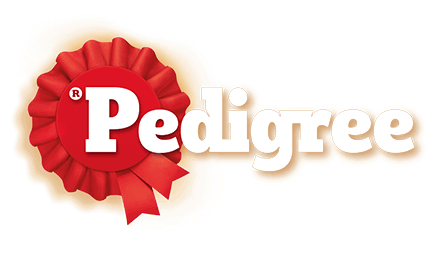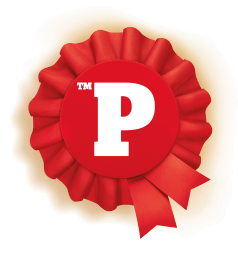Find products that match your dog’s needs

Puppies are curious little creatures who are eager to explore their surroundings. But as pups do a lot of their communicating and investigating via their mouths, this can often lead to your puppy nipping, chewing, and mouthing.
While these behaviours are quite normal and may even seem cute when your pup is just small, it won’t be quite so cute as they get bigger and stronger! Which is why it’s important to stop your puppy’s biting and nipping developing into a habit.
Your pup will go through different [stages of teething] throughout their puppyhood, beginning as early as 3 weeks old until they’re 6 months old. Unfortunately, they’re likely to experience discomfort during teething, which can lead to them biting or chewing anything and everything they can get their teeth on to relieve the pain. The best thing you can do is give them a good range of toys they can turn to when the urge to chew strikes, so your shoes don't seem like a chewy temptation!
It comes naturally to puppies to nip, bite and mouth (when they put their mouth around something but don’t bite down)- often during play, when they get excited or to sooth sore mouths, but it’s important to nip this habit in the bud while they’re still young. Here are a few ways you can prevent biting:
This might come as a surprise, but rather than attempting to cut out all nipping and mouthing from the start, it’s a good idea to teach your pup how hard they can press skin before it becomes painful. This is called bite inhibition training and it’s important because it means that if, later in life, your puppy becomes stressed or scared and they nip a person, they will have an inbuilt inhibition to causing harm.
If your belongings are falling victim to sharp puppy teeth or your pup likes to mouth during play, having a selection of [puppy toys] on hand will mean they always have a fun alternative to sink their teeth into. You know your puppy best and you’ll soon get an idea of when they’re most likely to mouth and bite (such as when they’re being groomed). If you think the urge might strike, make sure to have a toy at the ready .and redirect them onto that. To teach them the difference between chewing their toys vs. things they shouldn’t, choose toys that are clearly distinguishable from other household items. Be sure to give them lots of praise when they chew the desirable item.
If you’ve ever watched a litter of puppies together, you’ll have seen they mouth and bite each other - and often their mum too. So, it’s hardly surprising that when puppies play with humans they behave in a similar way. To stop your puppy from nipping people during play, teach them that this will result in the end of playtime by immediately stopping the game as soon as they use their teeth. Puppies respond to yelps from their playmates, so saying “ouch” or letting out a soft yelp will signal that they need to be gentler. Remember to give them lots of praise when they’re playing nicely to encourage more of it.
Putting your puppy in time out is a commonly used training technique, which involves leaving them alone after they’ve performed an unwanted behaviour. You can use this technique to stop puppies biting when they’re being held or stroked, in the same way you would end playtime if your puppy nips during a game. Simply give a “yelp” sound when your puppy uses their teeth to let them know it hurts, then walk away and ignore them for around 30-60 seconds. After this time, you can calmly return to what you were doing with your puppy.
A puppy training class is a great place to learn some valuable techniques, from how to get your dog to walk nicely on a lead to stopping your puppy biting. There’s a consensus among experts that reward-based training is best. Simply put, this means ignoring undesirable behaviour and instead rewarding your puppy when they offer desirable behaviours. Rewards can include praise and toys, but it’s worth noting that a lot of dogs will respond better to treats!
Even when we mean well, it’s possible we could encourage nippy behaviour without realising it. Here are a couple of things to avoid doing around your puppy to stop them biting:
It can be a real test of self-restraint not to raise your voice when your pup digs their needle-sharp teeth into your skin. There’s lots of evidence to show that scolding or punishing puppies doesn’t work because they simply don’t understand what they’re in trouble for. Not only that, but it can harm the bond between you and your puppy, even making them frightened of you. Instead, redirect them with one of their chew toys and reward them when they’re being gentle.
When your puppy is tiny, you may not feel the need to do much about their mouthing at first, but it’s important to be aware of the habits you could be inadvertently reinforcing. Rough play and waving your hands in their face can encourage them to play bite, so choose games such as fetch or tug of war instead, where there’s a toy involved.
When puppies mouth or nip, it’s usually not out of aggression. Consider the context, because they could be frightened or frustrated or being made to do something they don’t want to do. Take note of your pup’s body language and reconsider your approach, as they may simply need reassurance and support. However, there are times when puppy biting can be considered as aggression. Warning signs that suggest aggressive puppy behaviour include snarling, growling, snapping, lip curling, lunging, staring and persistent biting/mouthing. If you’re concerned about overt aggressive behaviour from your pup, it’s important to deal with this early, so be sure to talk to your vet or a qualified animal behaviourist.
Hopefully you’ve now got some handy techniques up your sleeve to stop your puppy from biting, but if you’re after more training tips, such as how to house train your pup, check out the PEDIGREE Help Hub.
@2023 Mars or Affiliates.

Find PEDIGREE® dog food online at one of our retailers today!
Buy online
Click to buy from any of the retailers below


